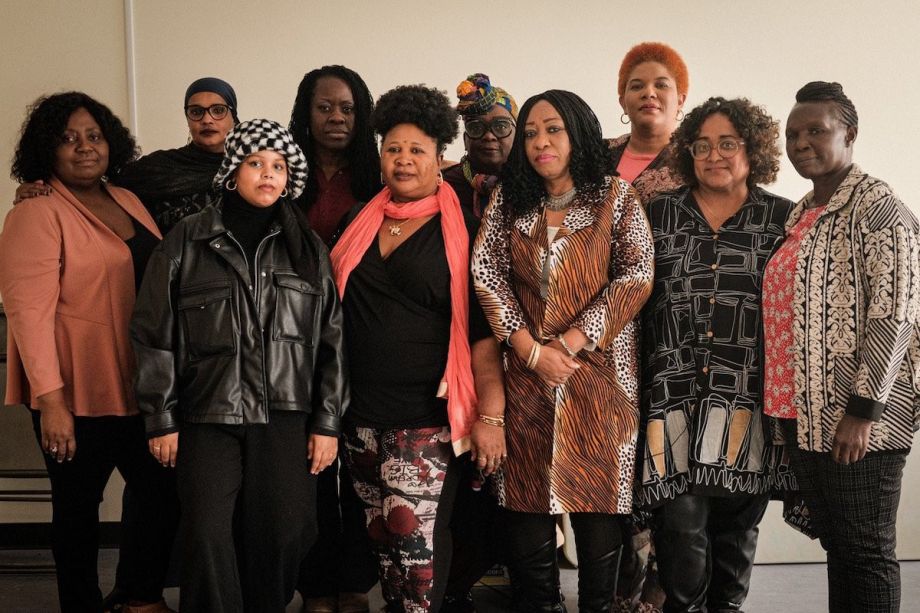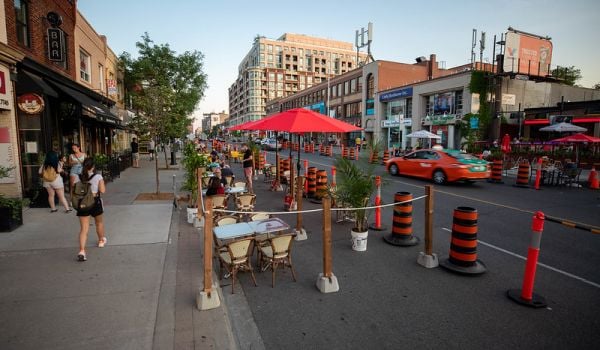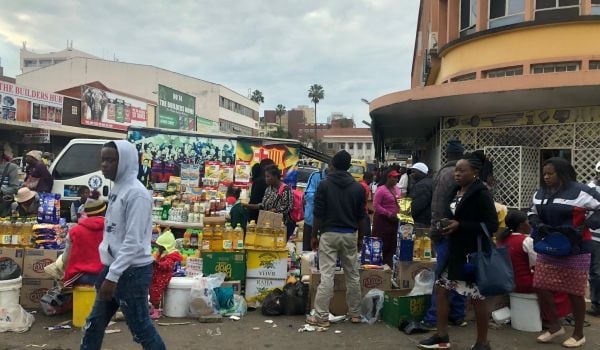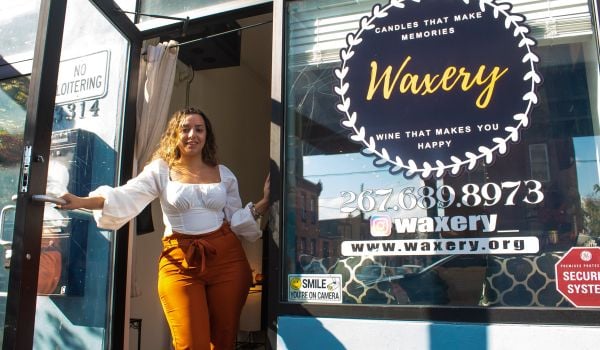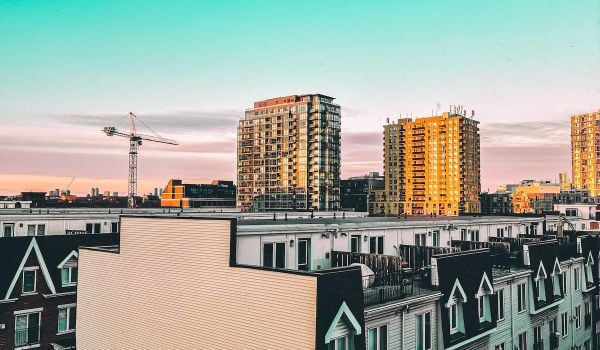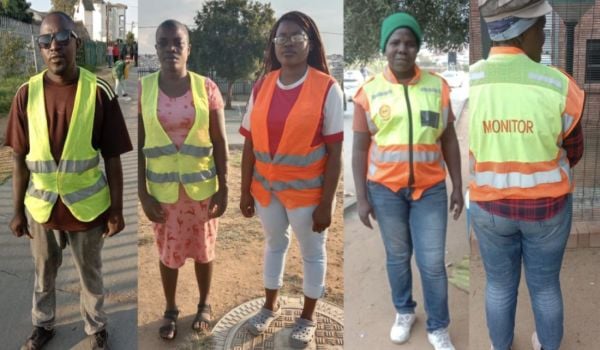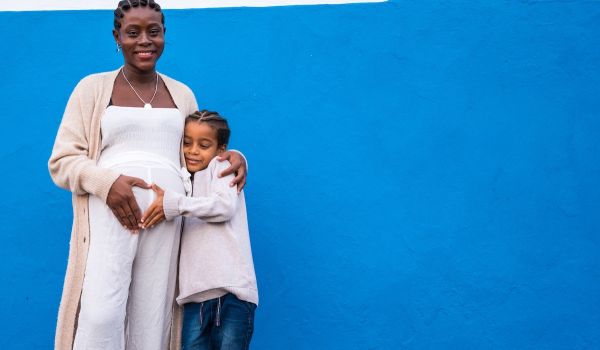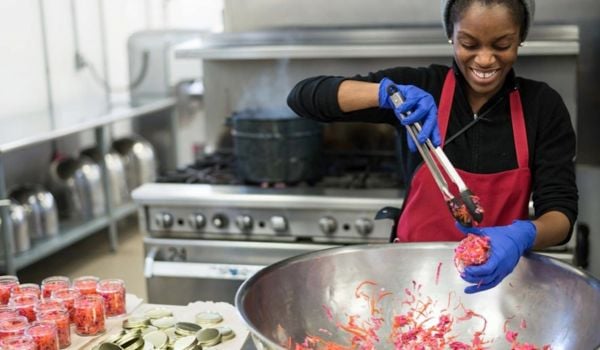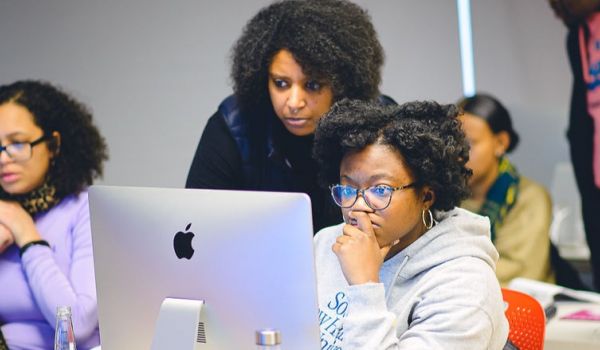The city of Toronto is the financial capital of Canada and home to some of the world’s largest banks. But not all people can access the city’s vibrant financial services.
Many people are unable to access a bank account, credit or a mortgage, in part due to their race, class or immigration status. Without a formal financial history, and with banks often discriminating against marginalized customers, disadvantaged communities fail to build sustainable growth.
Left behind by the Big Five banks that dominate the country’s financial system, many of Toronto’s Black communities have built alternative financial structures, based on traditional African systems of social relations to distribute money to people. Known across the globe by different names, these indigenous financing systems travelled with many Caribbean and African immigrants – primarily women — to Canada.
Meet the Banker Ladies
Two years ago, Caroline Shenaz Hossein, convened a meeting of Black women in Toronto who had been organizing self-managed informal cooperatives, known as Rotating Savings and Credit Associations (ROSCAs). These informal financial institution that involves a group of individuals who come together to save and borrow money. Such Black-led mutual aid groups exists all over North America, from Montreal to Miami.
Called the Banker Ladies Council, the group in Toronto convened to discuss how the commercial banking system has excluded and harmed these women organizers and their communities – and to raise awareness on how these alternative finance system have provided a lifeline to their families.
“I told my children we are not rich, but what money we save, we have to manage,” Mabinty Bangura, an immigrant to Toronto from Sierra Leone, said in a short documentary on three Black women in Toronto who created such ROSCAs.
Like many immigrants to Toronto her family did not have much, but Bangura was determined to save and invest. In her native country, she had joined osusu, a West African cooperative finance scheme, since she was 14 years old. In 2006, Bangura began using esusu in her Toronto community, too.
“We started with $50, then every two weeks someone gets $50,” she says. Starting small, the group of strangers eventually began trusting each other more, and increased their savings amounts.
“If you join esusu, you’re strong from there,” Bangura says in the documentary. “You can build a house back home. You can do anything you want to do … you work hard for your money, you get your contribution, you change your life.”
The money collected is used to help members pay bills, grow businesses, save up for down payments, take care of their families, and treat themselves. This collective system of savings frees participants from dependence on men, Bangura and other ROSCO organizers explain, while becoming a social event that builds community ties.
“The Banker Ladies Council has been tutoring the Canadian public about cooperative finance,” says Hossein, who also founded the Diverse Solidarity Economies collective (DISE), the Toronto-based Black social economy hub that produced the documentary. “And now they are ready to start thinking through programming and real institutional support for the building of a ROSCA-worthy city.”
Last year, the Banker Ladies Council confirmed both financial and technical support from the Ontario-based Meridian Credit Union — Canada’s second largest credit union — toward building out its own rotating and savings network. With the help of the Ontario Cooperative Association, the council is also looking into building up the Black social economy network across Canada.
By working with Meridian, the Banker Ladies Council of Toronto can help other Canadians access financial services highlighted by their mutual aid, cooperation and feminist lens.
The Black Social Economy
ROSCAs go by many names in Black communities across the world.
In Somali, it’s known as Hagbad. In Jamaican, it’s Partner; in Haitian, Sol; for Eritreans and Ethiopians, it’s Equub. As the Black diaspora has moved over centuries, so have indigenous African forms of knowledge and community building. While ROSCAs are by no means solely the invention of Black cultures, it is Black communities — as far and wide as Brazil, Jamaica, Canada and Haiti — that have kept cooperative financial options alive in the New World.
All these forms of cooperative finance are classified as part of the Black Social Economy (BSE). The term, coined by Hossein, describes the historic political and economic framework that exists in different forms wherever there are communities of Black people. It’s defined by the guiding principles of autonomy, mutual aid and independance.
Kenyan scholar Njeri Kinyanjui has been studying African women’s economic activities and the BSE for years. In Swahili, the BSE is called “utu ubuntu,” meaning humanness, self-reliance and solidarity. According to her research, the BSE model is a holistic approach to politics, economics and home life. Women are central in this model, she says.
In her book “African Markets: Utu Ubuntu,” Kinyanjui highlights how the model affects all parts of life, with no separation between production and consumption. In terms of finance, that means within a BSE system, or “untu economy,” financial investors make holistic decisions about what is best for the community, rather than the specific incentive to profit. From a feminist lens, this requires investors to forward ideals of nurturing, caring and reciprocity.
One impact of a feminist lens is refocusing from a growth incentive to one of sustainability. Many BSE institutions prefer to stay small and avoid the pitfalls that come with trying to endlessly grow and scale an organization. DISE co-founder Christabell P.J., an economics professor at the University of Kerala in India, has studied indigenous finance in the Global South and sees this model in practice in her research.
“In the capitalist system, we always need to scale up everything,” she says. “But they want to keep it a very micro-level kind of activity that helps that particular institution to be sustainable for a longer time.”
Members of these groups, like experts across the world, are excited by the entrepreneurial spirit the BSE enables. But where will these Black informal institutions take Toronto?
By embracing the Black social economy, the Banker Ladies are trying to build a decentralized, independent, small-scale cooperative financial system. That stands in stark contrast to Canada’s highly centralized and hierarchical banking industry.
The future of banking in Toronto
More than half of Canadians do not trust their banks. In an industry that exists to maximize profits, many believe their best interests are not being cared for. Indeed, many are excluded entirely from the industry, as banks typically do not want to take on the risk of someone with low income or no credit history. This traps people in poverty.
“The poor, they may not be creditworthy as far as the formal financial institutions are concerned,” P.J. says. “They may not have the proper assets in order to avail a loan from the formal banks or formal cooperative societies.”
P.J.’s research shows how mutual aid groups in India help impoverished communities engage with formal banks by providing collateral. As part of the Bank Linkage Program, the government of India would let these small mutual aid groups pool their savings and use that as a security against loans, giving low-income women access to banking services.
“What we found is that the women were able to command more credit from the formal financial institutions because the liability was born jointly rather than individually,” P.J. explains.
The Banker Ladies Council hopes to empower citizens in Toronto to engage with their financial services in radical ways. By working with Meridan and other institutional actors in the city, the mutual aid group hopes to connect their community-driven approach with the more formal financial services that already exist.
The goal for the Banker Ladies has never been to replace for-profit banks, but to collaborate with other stakeholders.
“We don’t want to displace the current financial system,” Hossein explains. Instead, members of the Banker Ladies are seeking recognition for their creative solutions – and recognition for the radical potential of these models.
“We don’t have to figure out a brand-new approach in Canada, we can take our cues from Kerala, India, or Accra, Ghana,” Hossein says. “These places have actually thought through, in a very pragmatic way, how ROSCAs, co-op finance and other BSE activities can be part of their financial lives.”
She’s right. With the BSE, Torontonians do not need to recreate the wheel. Instead, they can adapt and apply centuries of Black knowledge to our modern world.
This article is part of The Bottom Line, a series exploring scalable solutions for problems related to affordability, inclusive economic growth and access to capital. Click here to subscribe to our Bottom Line newsletter.

Likam is a writer and researcher based in Montreal. A political economy academic, he writes for multiple publications while working as an educator in the nonprofit sector.



